5 Ways to Socialize Your Dog
Is your four-legged friend lacking in social skills? Maybe they hide under the couch whenever guests come over, or bark uncontrollably at other dogs on walks. Don't worry, socializing your dog is easier than you think! In this article, we'll explore the importance of dog socialization and share five paw-some ways to help your furry companion become the life of the dog park.
Understanding the Importance of Dog Socialization
Before we delve into the ways to socialize your pup, let's take a moment to understand why it's so crucial. Socialization plays a vital role in shaping your dog's behavior. Just like humans, dogs are social animals, and proper interaction with both humans and other animals is essential for their mental and emotional well-being.
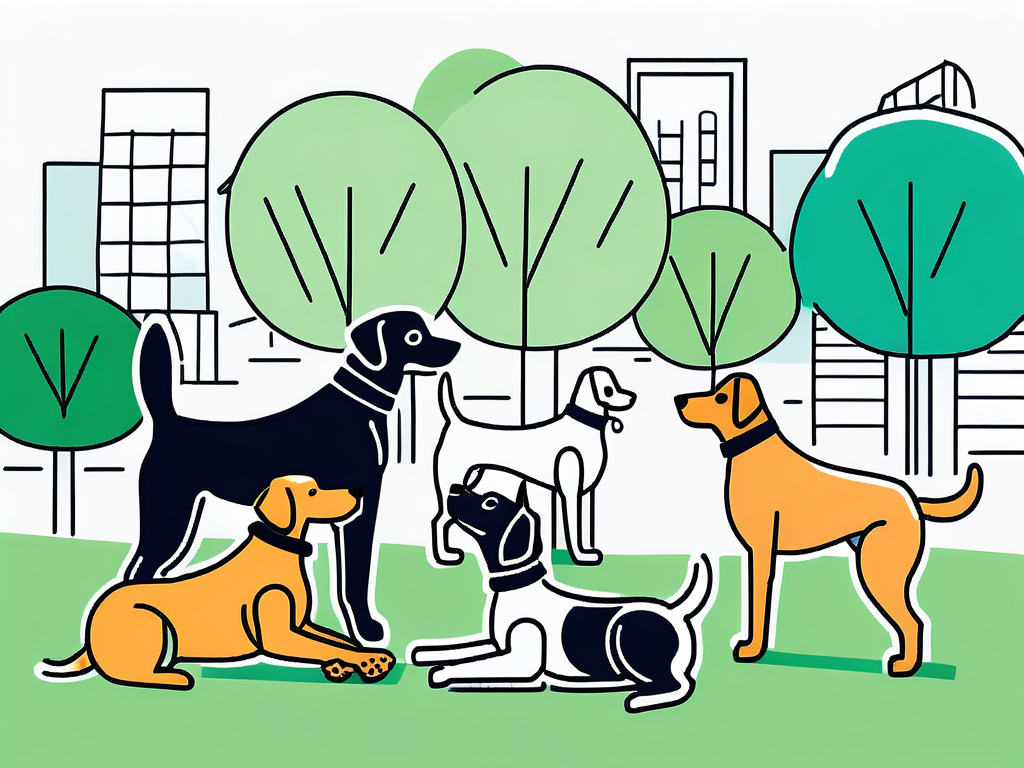
When a dog is well-socialized, they are more likely to exhibit positive behaviors, such as friendliness towards strangers, confidence in new environments, and the ability to adapt to various situations. This is because socialization helps them feel secure and comfortable in unfamiliar settings, reducing the likelihood of stress or aggression.
The Role of Socialization in a Dog's Behavior
Dog socialization helps your furry friend develop the necessary skills to handle different situations with grace and confidence. By gradually introducing your dog to various environments, people, and animals, you're allowing them to build a positive association and learn how to meet new challenges head-on.
Furthermore, socialization can prevent behavioral issues such as aggression, fearfulness, and separation anxiety. A well-socialized dog is more likely to be obedient, responsive to training, and able to communicate effectively with both humans and other animals.
The Impact of Socialization on a Dog's Mental Health
Did you know that socializing your dog can significantly impact their mental health? Well-socialized dogs are less prone to anxiety and fear-based behaviors. They are more likely to be well-adjusted members of the family, ready to take on any adventure with a wagging tail!
Additionally, socialization can boost a dog's cognitive abilities and problem-solving skills. When exposed to new experiences in a positive and controlled manner, dogs learn to think critically, adapt to changing circumstances, and make confident decisions, ultimately leading to a more enriched and fulfilling life.
Starting the Socialization Process
Now that you understand why socializing your dog is essential, let's dive into the first step: getting started!
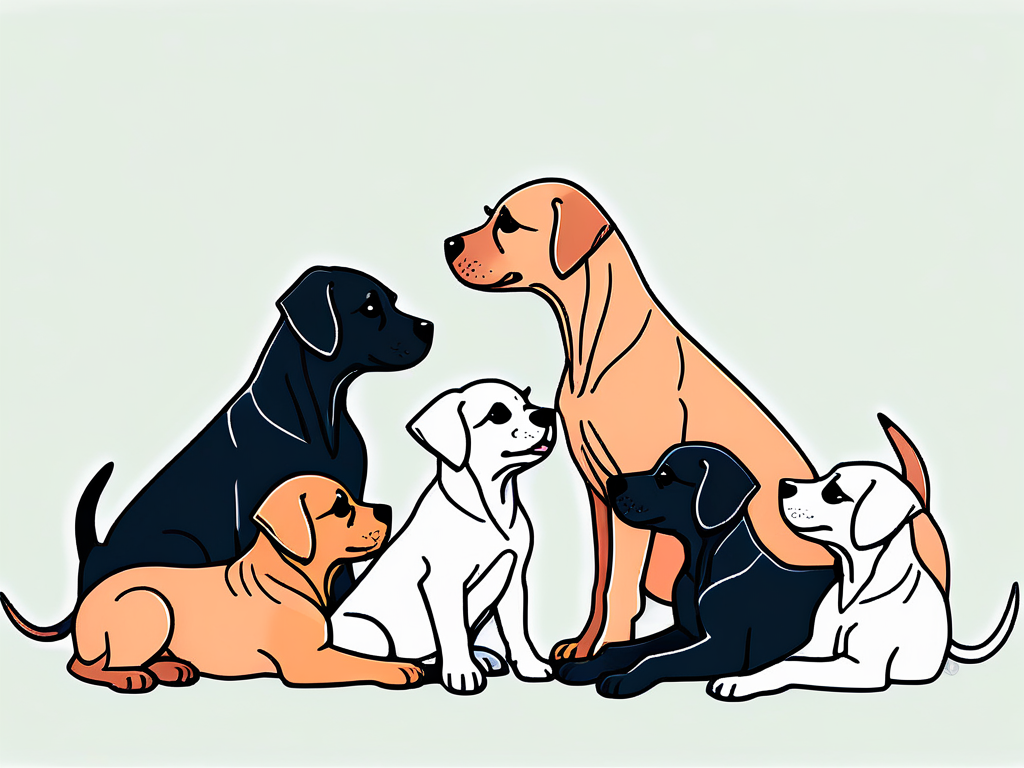
Socializing your dog is not just about having a well-behaved companion; it's also crucial for their mental and emotional well-being. Proper socialization can prevent fear and aggression issues down the line, making your furry friend more confident and happy in various situations.
When to Begin Your Dog's Socialization
It's never too early to start socializing your pup! The critical period for socialization starts around three weeks old and continues until they are 14-16 weeks old. However, that doesn't mean you can't socialize an older dog. Dogs can learn and adapt at any age, so don't fret if your furry pal is past their puppy days.
During the socialization period, expose your dog to different environments, sounds, smells, and people to help them become well-rounded and adaptable. Remember, every positive interaction contributes to shaping your dog's behavior and responses in the future.
Preparing Your Dog for Social Interactions
Before you expose your dog to new people, places, and four-legged friends, make sure their basic training is in place. Teach them basic commands like "sit," "stay," and "leave it." These commands will be instrumental in managing their behavior during socialization experiences. Oh, and don't forget to stock up on belly rubs and treats - positive reinforcement is the way to go!
Additionally, consider your dog's individual personality and temperament when socializing them. Some dogs may be naturally more outgoing, while others might be shy or anxious. Tailor your socialization approach to suit your dog's needs, always keeping their comfort and safety in mind.
Techniques for Socializing Your Dog
Ready to get your dog's socializing journey on the road? Here are some tried-and-true techniques to help them become a social butterfly.
Socializing your dog is not just about having them interact with other dogs; it's also about exposing them to a variety of environments and experiences. This exposure helps them become well-rounded and adaptable pets, ready to handle any situation life throws their way.
Introducing Your Dog to New Environments
Variety is the spice of life, and the same goes for your dog's socialization. Take your furry friend to parks, beaches, pet-friendly cafes, and even puppy playgroups. Let them explore different sights, smells, and experiences. Just remember to take it slow and always prioritize their safety and comfort.
When introducing your dog to new environments, pay attention to their body language. Are they curious and eager to explore, or do they seem anxious and hesitant? By observing their reactions, you can gauge their comfort level and adjust your approach accordingly. Remember, every dog is unique, and what works for one may not work for another.
Encouraging Interaction with Other Dogs
Dogs, just like humans, need companionship and playmates. Organize playdates with friendly, well-behaved dogs to help your pup build their confidence and social skills. Keep the interactions positive and supervised, and watch your dog thrive in the presence of their newfound furry friends!
During interactions with other dogs, pay attention to their play styles and communication signals. Some dogs may prefer rough-and-tumble play, while others enjoy a more gentle approach. By understanding these nuances, you can ensure that your dog's social interactions are enjoyable and stress-free for all parties involved.
Overcoming Socialization Challenges
Socializing your dog may come with a few bumps in the road. Here's how to tackle them like a pro.
Socializing your dog is a crucial aspect of their overall well-being and happiness. It helps them feel more comfortable in various situations and strengthens the bond between you and your furry companion. While it can be a rewarding experience, it's essential to be prepared for potential challenges that may arise along the way.
Dealing with a Shy or Fearful Dog
If your dog is on the timid side, take things slow. Gradually expose them to new experiences using positive reinforcement. Create a safe space at home where they can retreat when they feel overwhelmed. Over time, with patience and love, their confidence will grow, and socialization will become easier.
Remember that every dog is unique, and what works for one may not work for another. It's essential to tailor your approach to your dog's specific needs and personality. Building trust and a sense of security is key to helping a shy or fearful dog navigate the socialization process successfully.
Addressing Aggression During Socialization
Aggression can be a challenging behavior to address. If your dog shows signs of aggression during socialization, consider seeking professional help from a certified dog trainer or behaviorist. They can create a tailored plan to help your furry friend overcome their aggression and learn appropriate social skills.
It's crucial to address aggression promptly and effectively to ensure the safety of your dog and others. Avoiding situations that trigger aggressive behavior and providing positive reinforcement for calm and non-aggressive actions can help in reshaping your dog's responses during socialization.
Maintaining Socialization Throughout Your Dog's Life
Socialization isn't a one-time event; it's a lifelong journey. Keep the socialization vibes strong with these tips:
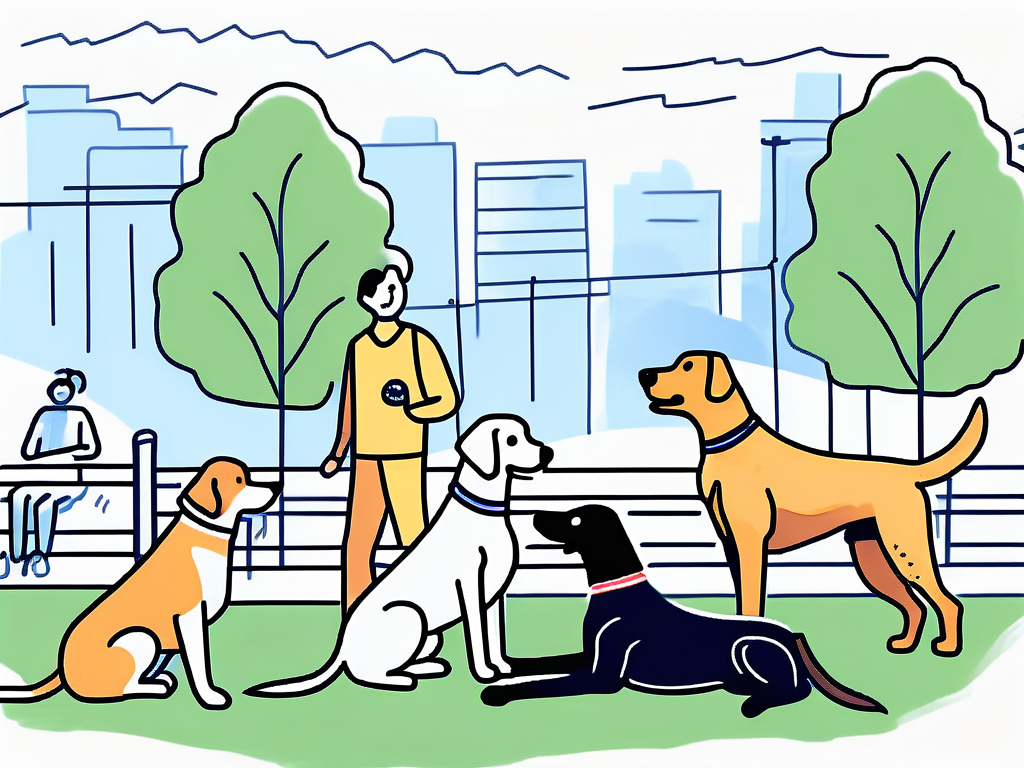
Building a strong socialization foundation for your furry friend is crucial for their overall well-being and happiness. Dogs are social creatures by nature, and regular interactions with other dogs, animals, and humans help them develop important social skills and prevent behavioral issues.
Regular Social Activities for Your Dog
Continue exposing your dog to new experiences and environments. Take them on regular walks, visits to dog-friendly events, and invite friends over for snuggles and playtime. The more positive experiences they have, the more well-rounded and happy they'll be.
Exploring different environments also helps your dog become more adaptable and confident in various situations. Whether it's a trip to the beach, a hike in the mountains, or a stroll in a bustling city, each new experience enriches their life and strengthens your bond.
Adapting Socialization Techniques as Your Dog Ages
As your dog grows older, their socialization needs may change. Keep an eye on their comfort level and adapt your socialization efforts accordingly. While they might prefer leisurely strolls in their golden years, they can still benefit from gentle interactions and brain-stimulating activities.
Older dogs may also enjoy supervised playdates with calm and compatible companions to keep them mentally engaged and physically active. These interactions provide valuable socialization opportunities while ensuring your senior pup stays happy and healthy in their golden years.
Remember, Rome wasn't built in a day, and neither is a well-socialized dog. Be patient, consistent, and most importantly, have fun along the way. Your dog will thank you for it, and you'll have a loyal, confident companion by your side wherever your adventures take you!

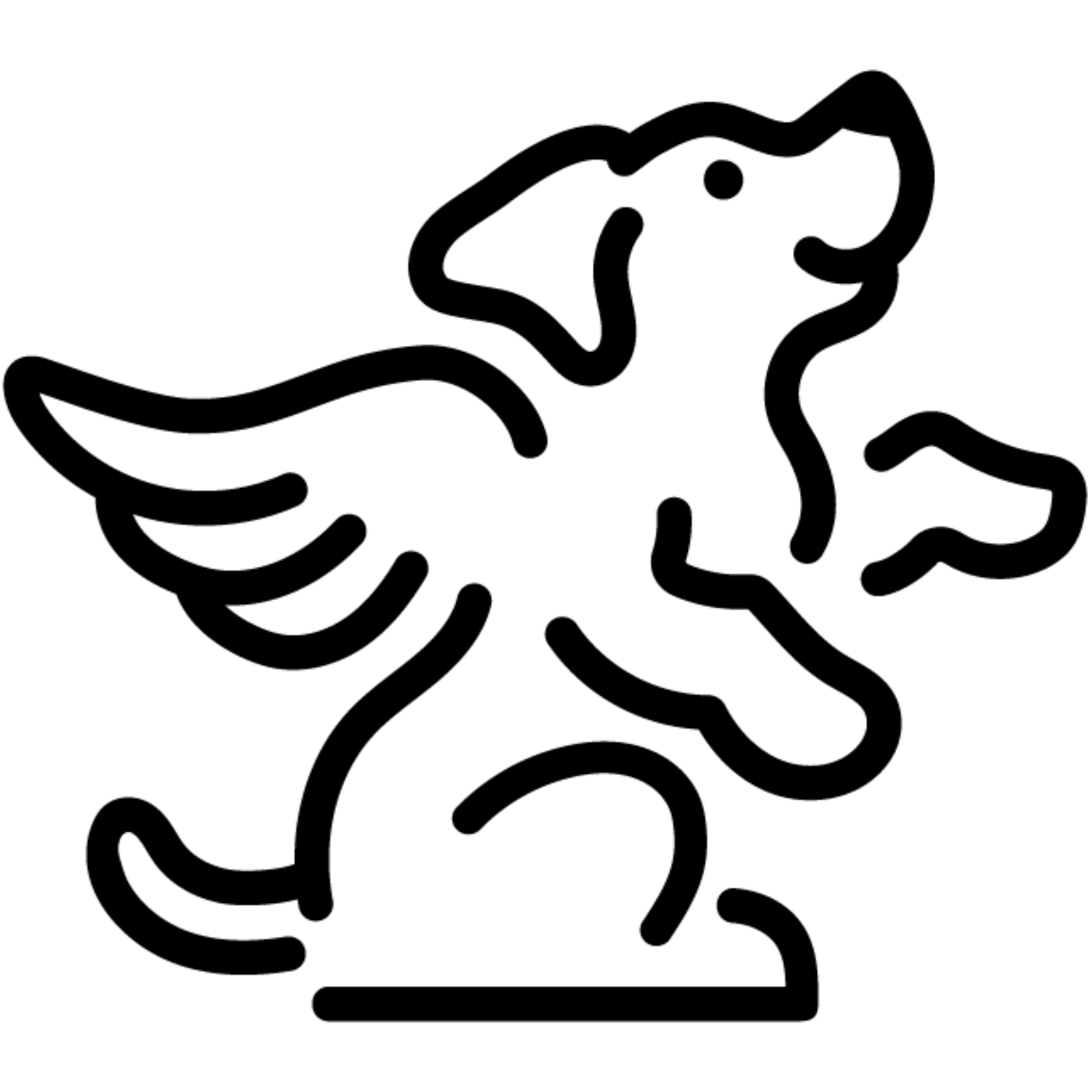

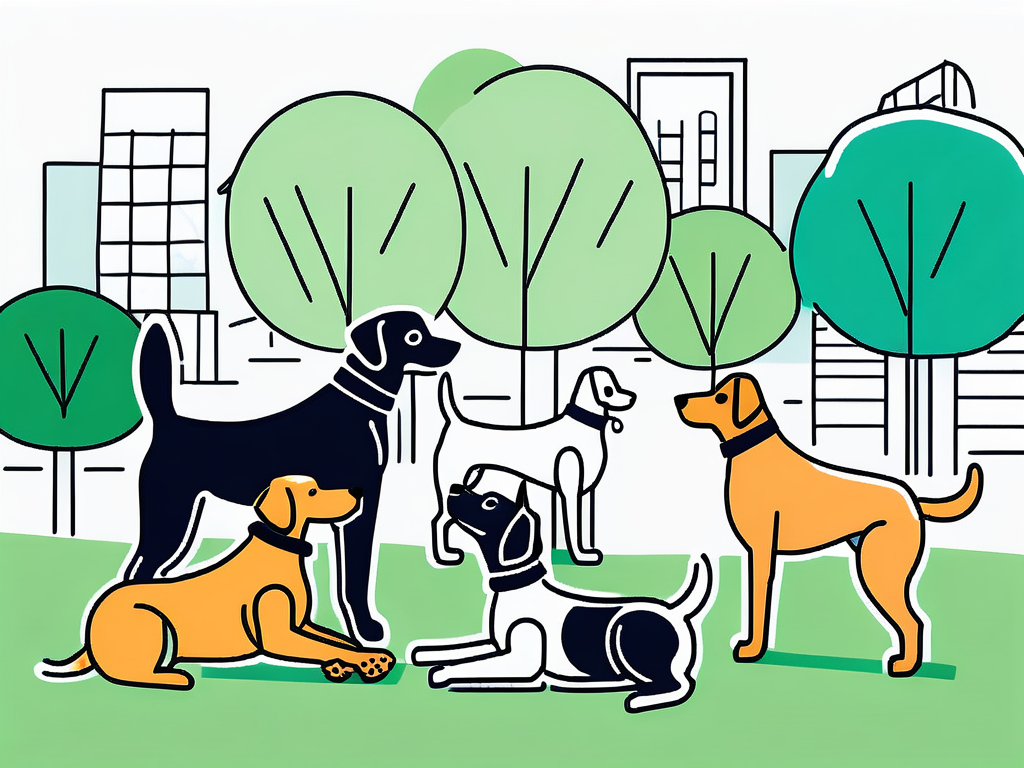
Share:
The Best Mini Dog Backpacks for Your Pint-Sized Pup
How to Socialize Your Dog to Other Dogs